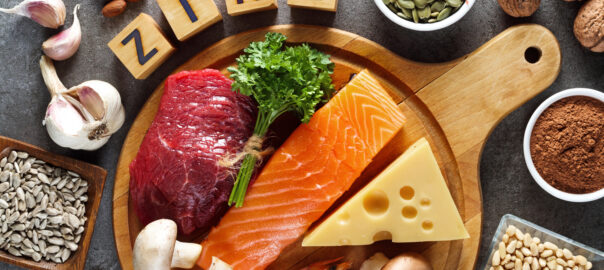Zinc is the second most abundant mineral in the body after iron, with over 300 enzymes and 1000 transcription factors dependant on this essential micronutrient. It is involved in many cellular processes such as cell proliferation and differentiation, protein synthesis, gene transcription, nucleic acid metabolism and DNA synthesis.1
Zinc deficiency is common, with an estimated one quarter of the world’s population being deficient, often caused by poor dietary intake, low absorption and increased zinc loss.1 The best food sources of zinc can be found in meat, eggs and fish alongside plant-based options such as pumpkin seeds, legumes, cashew nuts, mushrooms and spinach.
In this article we take a closer look at zinc and explore its many benefits to health, including research findings, supplement forms and how to improve absorption.
Last updated on 10th April 2024 by cytoffice






